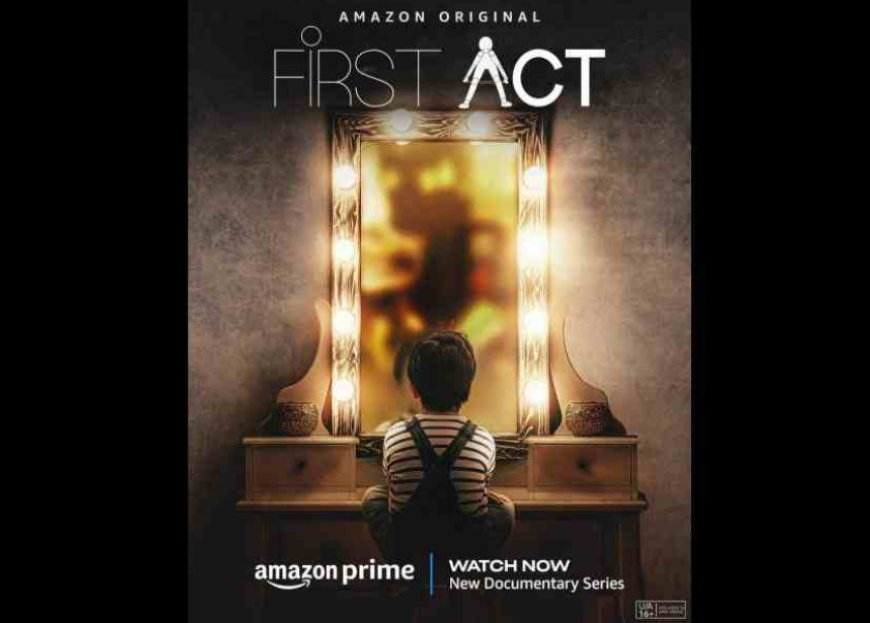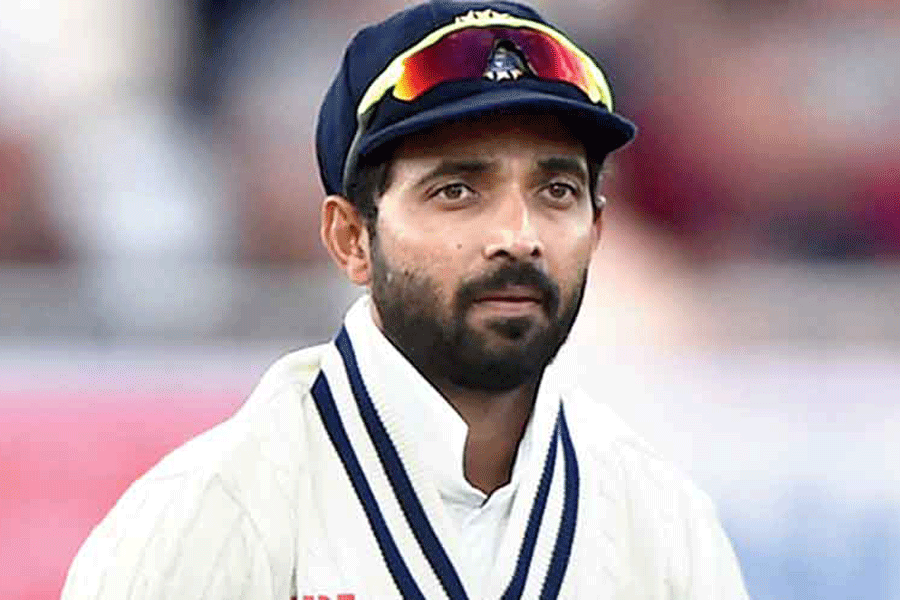Director Deepa Bhatia Explores the World of Young Actors in Prime Video's 'First Act'
Bhatia Discusses the Making, Challenges, and Insights Gained from the Documentary Series

A six-part Prime Video documentary series called First Act examines the advantages and disadvantages of the world of young actors. Director Deepa Bhatia spoke with t2 about the program and other topics.
When I initially learned about First Act, I was shocked that this idea had not been considered before. What prompted you to investigate this concept?
Taare Zameen Par was our first exposure to dealing with children. We were inspired to reconsider the method after witnessing the way movies are created with kids. We stated that we would not pull children out of school and that there needs to be another way of looking at these processes when Amole (the husband of Gupte) was leading Stanley Ka Dabba. "I want to do this, but I don't want to shoot it Saturday to Saturday, I don't want any auditions, and I want to do it like a workshop," he stated. And that's also how First Act was created.
We all know how sets are run, so we started First Act curiously, but I wanted to go deeper and examine it in the context of immigrant families, parental aspirations, and pressure from the industry. I desired a 360-degree view of it. I knew this was gold the moment I laid eyes on the material. I saw parents pushing their children when they brought them on set. I became aware of this when I saw a mother putting words in the mouth of her four-year-old child and realizing that their entire fantasy was being forced onto them. I felt I ought to investigate it. I had a pretty open mind going into the performance. I said, "Let's get out and explore." I'll take my time and not rush things. Additionally, I must express my gratitude to Amazon (Prime Video) for allowing me to spend so many days filming First Act and for giving me access to these families and kids. Things simply disclosed themselves, giving themselves away.
I started filming completely independently even before we joined together with Amazon. I've only recently started attending these auditions and networking with casting directors and other professionals to have a sense of the atmosphere. We were lucky to have their backing, allowing us to pursue this to its conclusion.
It would have contradicted the premise of what you were originally attempting to criticize if you had filmed it in a different manner and not according to this model.
That is very accurate. For the most part, I would just act on impulse. My first interest has always been doing documentaries, so it was wonderful to be able to examine First Act in a way that both draws and engages viewers. I was fortunate enough to avoid the very things that I was criticizing.
How has the response been?
There is a great deal of empathy and understanding for the children and their circumstances. We are all aware of the incidents that occur on sets, and I believe that there is an awareness that someone has been on a set when something similar has occurred to some extent. I wanted to reevaluate the incredibly uneven power dynamic that exists between these children and their parents.
You have a solid foundation in the field and are well-versed in its workings. However, did anything catch you off guard when you were doing research for the series?
The idea that so many parents would lack a moral compass caught me off guard. I had assumed that people would be cunning and would know what not to say in front of the camera, but the majority of them accepted what they said, which made me realize that they had no idea what was right or wrong, crushed my heart. The fact that no one believed it inappropriate to tell their kids to "come on you do this, I will give you a chocolate" or "I will hit you, I will not take you there" was another thing that shocked me. That kind of open disclosure about how they extract things from these kids caught me off guard. I was devastated.
However, many of these kids also seem to enjoy what they are doing.
Yes, many of them seem to thrive in the limelight. They enjoy performing, dancing, and singing, and children naturally derive great joy from this. How are we to dispute that? They adore it. However, I found that when we don't control how kids interact with the outside world, some of them can also turn into really challenging people, and the balance of power shifts. There are moments when you witness them acting really rudely toward their parents. They speak less as they are starting to realize that, "Look, I am the breadwinner." Such parents set up something which boomerangs.
Once more, I've seen a number of kids that have talent and the drive to succeed, and some parents really manage to curate it all, keeping it under control and under observation. It's a lovely career and a lovely opportunity for self-expression. It's okay if you can simply take it in stride, detach the enjoyment from it, and treat it as an annual day that you go to, work for those months, put on a show, and then move on with your life. If not, I have witnessed what happens when it goes the other way, such as constant media exposure. Then, I observe that the kids can occasionally become challenging for their parents to manage.
What proved to be the most rewarding aspect of assembling this, and what were the main obstacles?
The most essential thing to me was that I was always thinking about how to make my point while being as tactful as possible. In order to establish a connection with my audience, I also tried to discover a storytelling rhythm that would allow them to enter and relate to the kids. Patience was the other factor. Since we spent almost 200 days filming, it was difficult to show the audience the entire picture.
Speaking of talking heads, you had Jugal Hansraj, who made his debut with Masoom in the 1980s, and Sarika, who acted as a child actor in the 1950s and 1960s. What fundamental distinction do you see between child actors now and those of the past?
When we spoke last night, Sarika had seen four episodes of First Act and stated she was shocked to see how little had changed. As an industry, we don't have the necessary discipline to be strict and guardianship over what happens on our sets. That is no longer negotiable. We abide by the regulations when we travel overseas and photograph with kids. In five hours, we remove them from the set.
Moreover, it is increasingly acceptable to put your kids in the public eye due to social media and the desire to be noticed. Sarika claims that since there is a lot more content geared toward children around, kids are now a part of everything. Because of the OTTs, the content's nature can be riskier and more focused on topics we wouldn't often expose them to. Counseling is not offered. Someone needs to provide them advice and ensure that there isn't any psychological harm or strain. We are creating that kind of stuff, therefore we have to consider these aspects. Regarding information sharing and acknowledging that the youngster need not be the center of attention on set, there are a lot of things that may happen on the industry's end.
Except for the headline, this story has not been edited by Press Time staff and has been published from a syndicated feed.























































